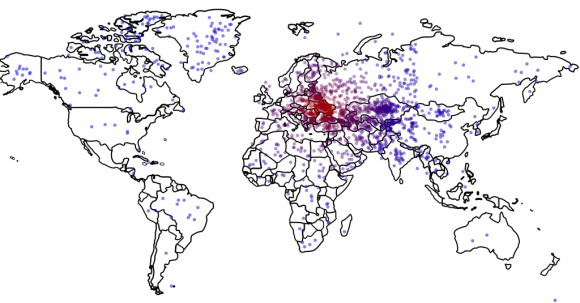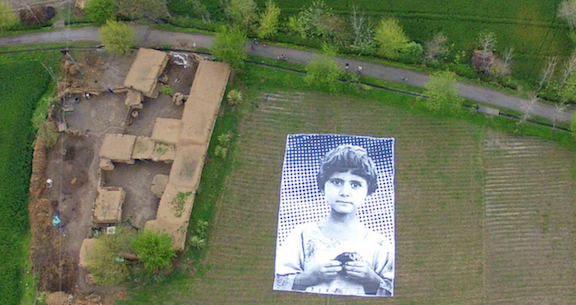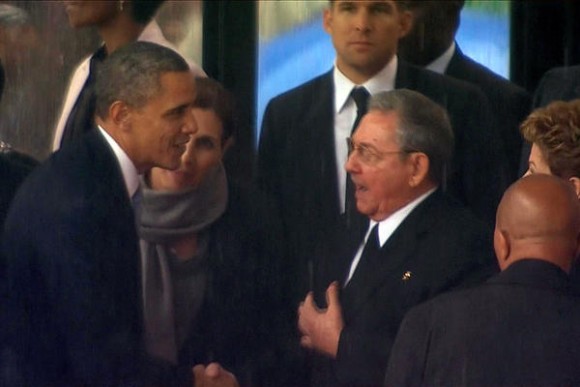
This should be rather obvious, but a recent study shows that the less informed you are, the worse your policy recommendations are likely to be. Specifically, you are much more likely to advocate U.S. military intervention in Ukraine if you’re also someone who can’t find Ukraine on a map.
On March 28-31, 2014, we asked a national sample of 2,066 Americans (fielded via Survey Sampling International Inc. (SSI), what action they wanted the U.S. to take in Ukraine, but with a twist: In addition to measuring standard demographic characteristics and general foreign policy attitudes, we also asked our survey respondents to locate Ukraine on a map as part of a larger, ongoing project to study foreign policy knowledge. We wanted to see where Americans think Ukraine is and to learn if this knowledge (or lack thereof) is related to their foreign policy views. We found that only one out of six Americans can find Ukraine on a map, and that this lack of knowledge is related to preferences: The farther their guesses were from Ukraine’s actual location, the more they wanted the U.S. to intervene with military force.
Only about 16 percent of Americans can locate Ukraine on a map. Some respondents placed Ukraine “in Brazil or in the Indian Ocean.” Yeesh.
Anyone surprised by this should really pick up Bryan Caplan’s book, The Myth of the Rational Voter: Why Democracies Choose Bad Policies. “In theory, democracy is a bulwark against socially harmful policies,” Caplan writes. “In practice, however, democracies frequently adopt and maintain policies that are damaging.”
One thing I would add is that there is a reason uninformed opinions swing in the pro-war direction, rather than the non-intervention direction. It’s not as if a blank slate just magically tends toward greater U.S. military intervention. The uninformed get bits and pieces of information from a press corps that largely serves to amplify the hawkish rhetoric of politicians in Washington and from cable news anchors (who, I believe, are often as uninformed as their viewers). If you’re not going to start a university-level research project on some pressing issue of either foreign or domestic policy, you defer to these filtered sources. The fact that we end up with still very uninformed people whose lack of knowledge is highly correlated with a pro-war position should tell us something about the nature of the press and of cable news.






